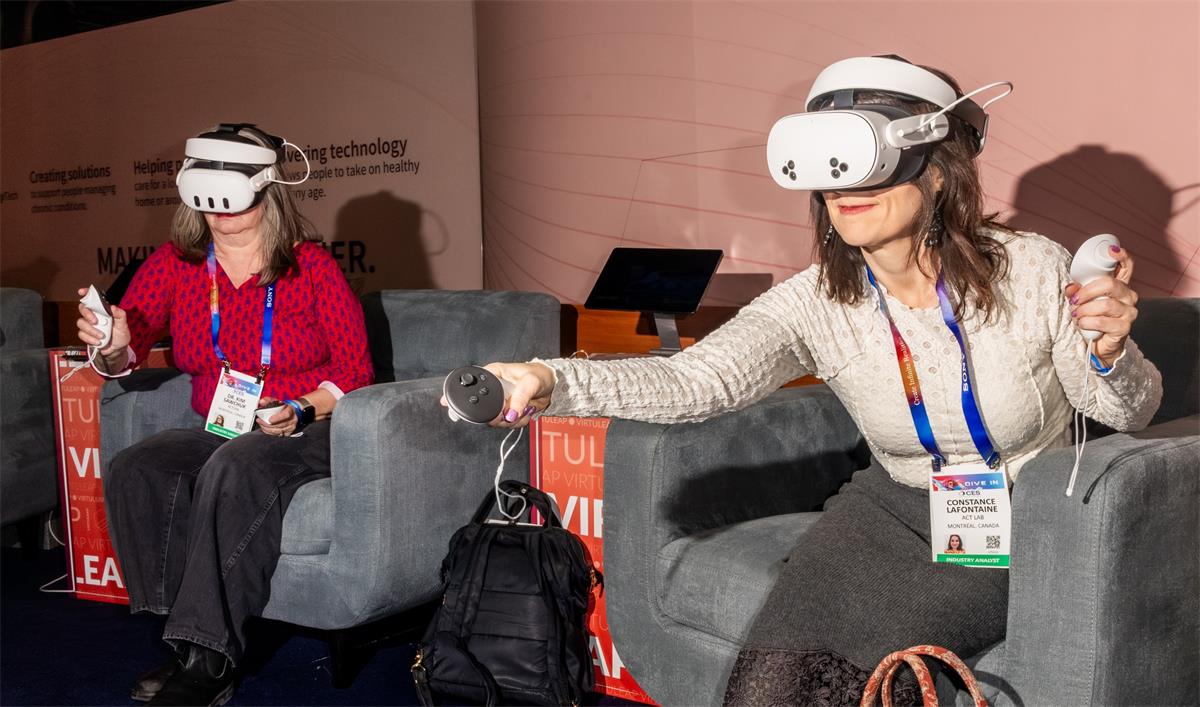
June marks Alzheimer’s & Brain Awareness Month — a time to recognize the millions of individuals, families and caregivers impacted by Alzheimer’s disease and other forms of dementia. Here at the AgeTech Collaborative™ (ATC) from AARP, we’re proud to be helping nurture and make connections among bold and innovative companies that are finding new ways to address the issues common to Alzheimer’s and brain health more generally.
In honor of Alzheimer’s & Brain Awareness month, we’re highlighting the work of six ATC startup participants that are building tools and technologies to help people navigate issues surrounding cognitive health earlier and more effectively. Let’s take a closer look at how these innovators are making a difference!
Using short, patient-led cognitive tests, Neurotrack helps clinicians identify cognitive impairments quickly and accurately during a patient’s annual wellness visit. This, in turn, empowers early interventions and timely access to meaningful care options. Designed to be culturally agnostic and to integrate easily into providers’ existing workflows, Neurotrack’s tests help distinguish cognitive impairment from normal aging and allow for tracking cognitive functioning over time, further improving patient outcomes. Neurotrack also offers patient education and behavior change support to help address modifiable risk factors.
Effectivate helps keep users sharp through a “brain-training” platform that aims to improve memory and cognitive performance. Effectivate’s personalized exercises and suite of puzzle, strategy and other games all help build new neural connections that can keep the mind sharp, boost mental performance and, with regular engagement, improve overall cognitive health. In addition, the platform allows clinicians to access patient data remotely, enabling better monitoring and fine-tuning of exercises for improved patient outcomes.
Virtuleap, a startup working at the intersection of virtual reality (VR) and neuroscience, uses VR and artificial intelligence (AI) to create immersive solutions that overcome traditional boundaries to improve cognition and potentially tackle the impact of cognitive disorders. (See attendees trying out the Virtuleap headset in the ATC booth at CES 2025 in the image above!) Its enhanced VR delivers daily cognitive workouts with fun VR games specifically designed to improve mental agility and cognitive skills such as memory, attention and problem-solving. Additional functionality includes a self-paced cognitive evaluation presented in a VR environment that collects data on a variety of users’ cognitive abilities, such as abstract reasoning and cognitive flexibility.
“Science your brain” with Thinkie, whose infrared wearable sensor allows you to see — in real time! — how your brain responds to games and meditation. Complementing the sensor is an app that assesses brain age, guides the user's brain training regimen and adapts to ensure a consistent challenge. Leveraging research suggesting that real-time neurofeedback can slow cognitive decline, the Thinkie app itself offers neuroscientist-designed games to help improve the brain’s executive functioning, including mental speed, concentration and focus; but the system can also be used with offline activities such as reading, meditation or playing a musical instrument.
Seven Point One has developed AlzWIN, an AI-powered voice screening tool that detects early signs of dementia in just one minute, making cognitive assessment fast, scalable and accessible — and giving users an opportunity to make more informed medical, financial and other decisions. After identifying over 10,000 patients through mass screening, they’re focused and ready to help a massive, underserved aging population with a clinically validated, cost-effective solution.
Blank Slate is a tech firm dedicated to pushing the limits of the human brain using insights from cognitive science and AI. Braintrust, its digital app focused on helping people with memory loss retain information and learn new things, was launched in June 2024 after three years in R&D with Veterans Affairs, Yale University and Boston University neuroscience centers, and it is built on published, peer-reviewed scientific findings.
Whether you're already part of the AgeTech Collaborative or are just discovering our community, we invite you to explore the work of these and the other innovators who are part of the AgeTech Collaborative ecosystem — and consider how you might collaborate and support their missions. Together, we can move the needle on brain health and make aging easier for everyone.
#StartupSpotlight